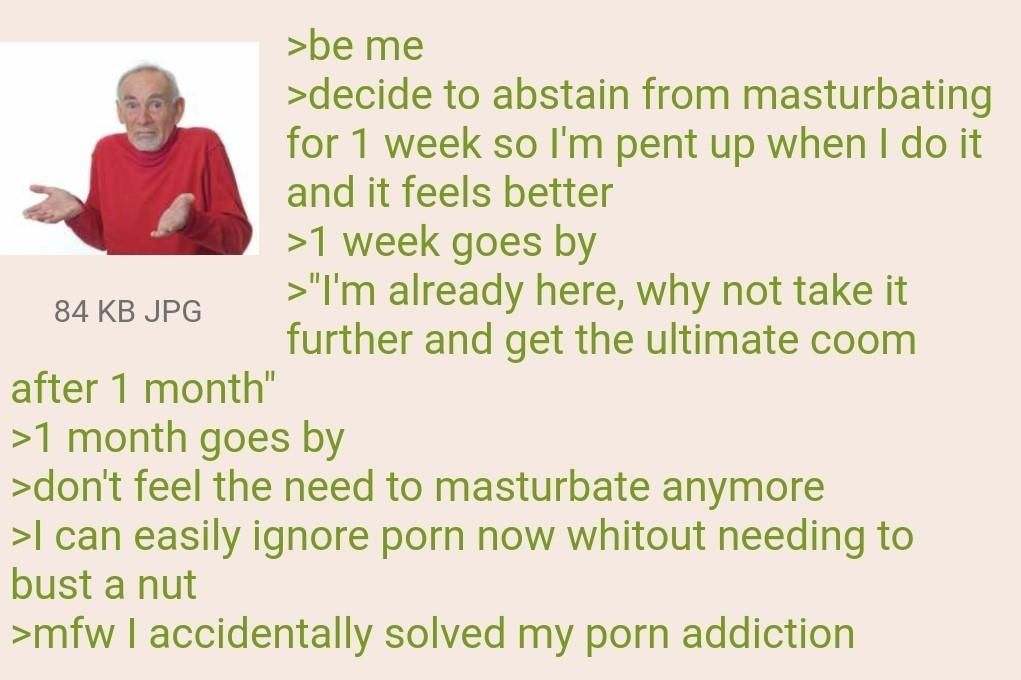this post was submitted on 03 Oct 2023
775 points (95.0% liked)
> Greentext
7696 readers
1 users here now
founded 2 years ago
MODERATORS
you are viewing a single comment's thread
view the rest of the comments
view the rest of the comments

Withdrawal symptoms aren't the only thing that signifies an addiction. A very quick look at the definition includes "the condition of being habitually occupied with or involved in something." On the strictest definition level, you're just wrong.
That's not a super useful metric, though, so in addition to those, almost any real discussion of addiction includea a requirement for it to be negatively impactful to your life. Sure, physiologically addictive substances obviously have a negative impact on your life. It's pretty clear that there are many ways things that aren't physiologically addictive, when used habitually, can cause issues.
Further, not all physiological addictions require professional or medical intervention, or have you never heard of someone quitting smoking cold turkey?
I did and it usually takes way more than jusf self control to quit it. Some people are just built different.
What I was trying to show by mentioning withdrawal symptoms that masturbation does not change physicochemical make up. All it does is release dopamine (hell, not even masturbation, the orgasm itself), and its not the only activity that does that. Eating, sports, donating, receiving compliments... all of those give you dopamine.
Actual addictions change you inside, sometimes severely enough that you need professional help.
I just don't think its useful to call both of these an addicion, given how different in nature they both are. I think there should be a difference between an addiction and a habit. But thats just my opinion and I don't force anyone to agree with it
You're sure making a lot of bold, definitive statements for "that's just my opinion bro!" And what I'm trying to say is that, fundamentally, you're wrong. Further, it's actually a bit dangerous to say to someone struggling with a very real thing that they just need to have some self control. Don't rub one out for a week! You'll be fine!
Psychological addictions have a lot of the same impacts on your life as physiological ones. People employ addiction-seeking behaviors to get what they want. It can be INCREDIBLY difficult to stop. Often times you can't without psychological help or group support. Hell, psychological addictions can even come with withdrawal symptoms.
All things point towards this being an addiction. What do you lose by extending the empathy towards these people struggling that you do to those struggling with other addictions? It's more convenient, I suppose, to say that the problem and solution all rest within the other person's head, nevermind that what's inside someone's head is literally their entire existence.
Gratz on quitting smoking, though, any addiction is hard to kick.